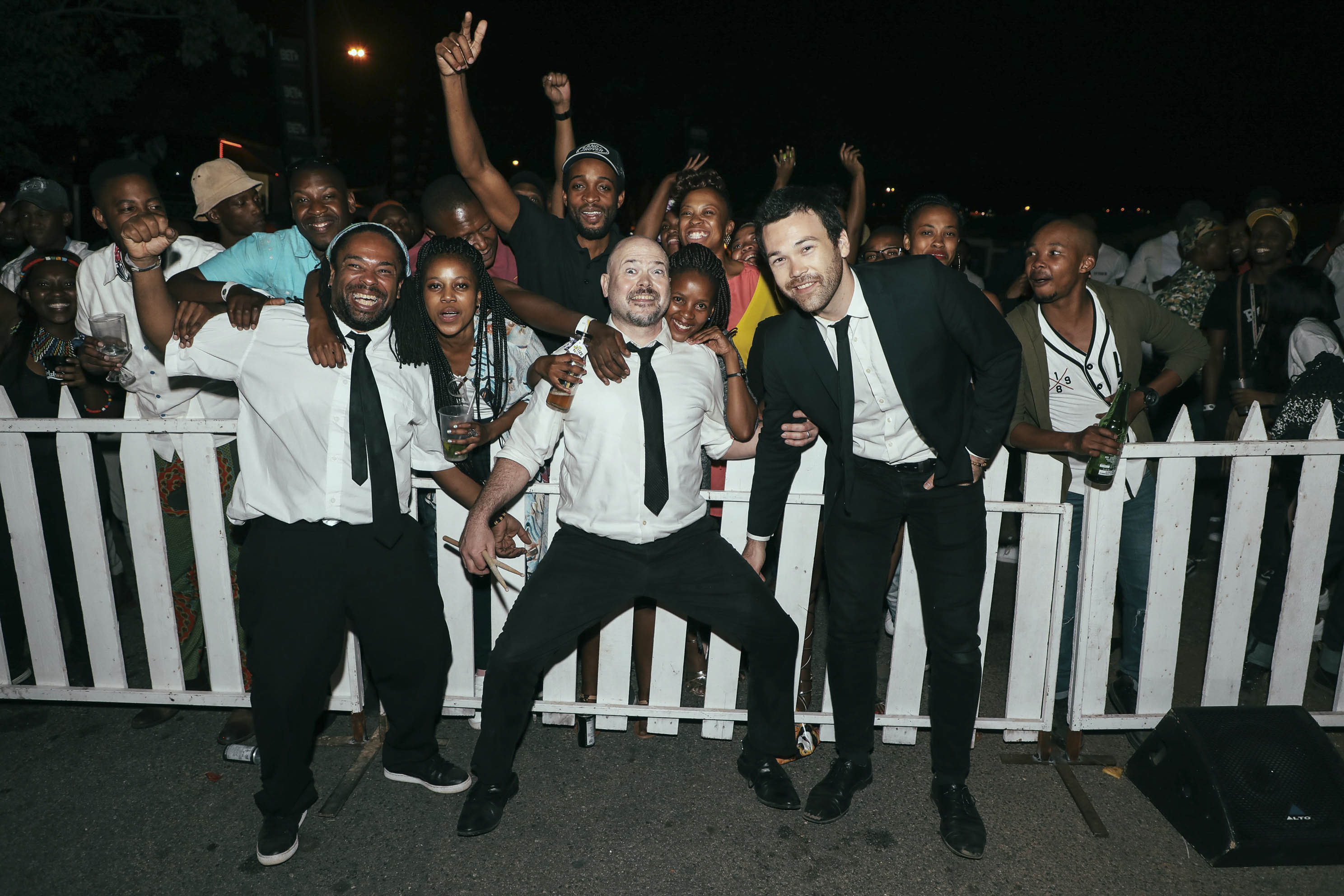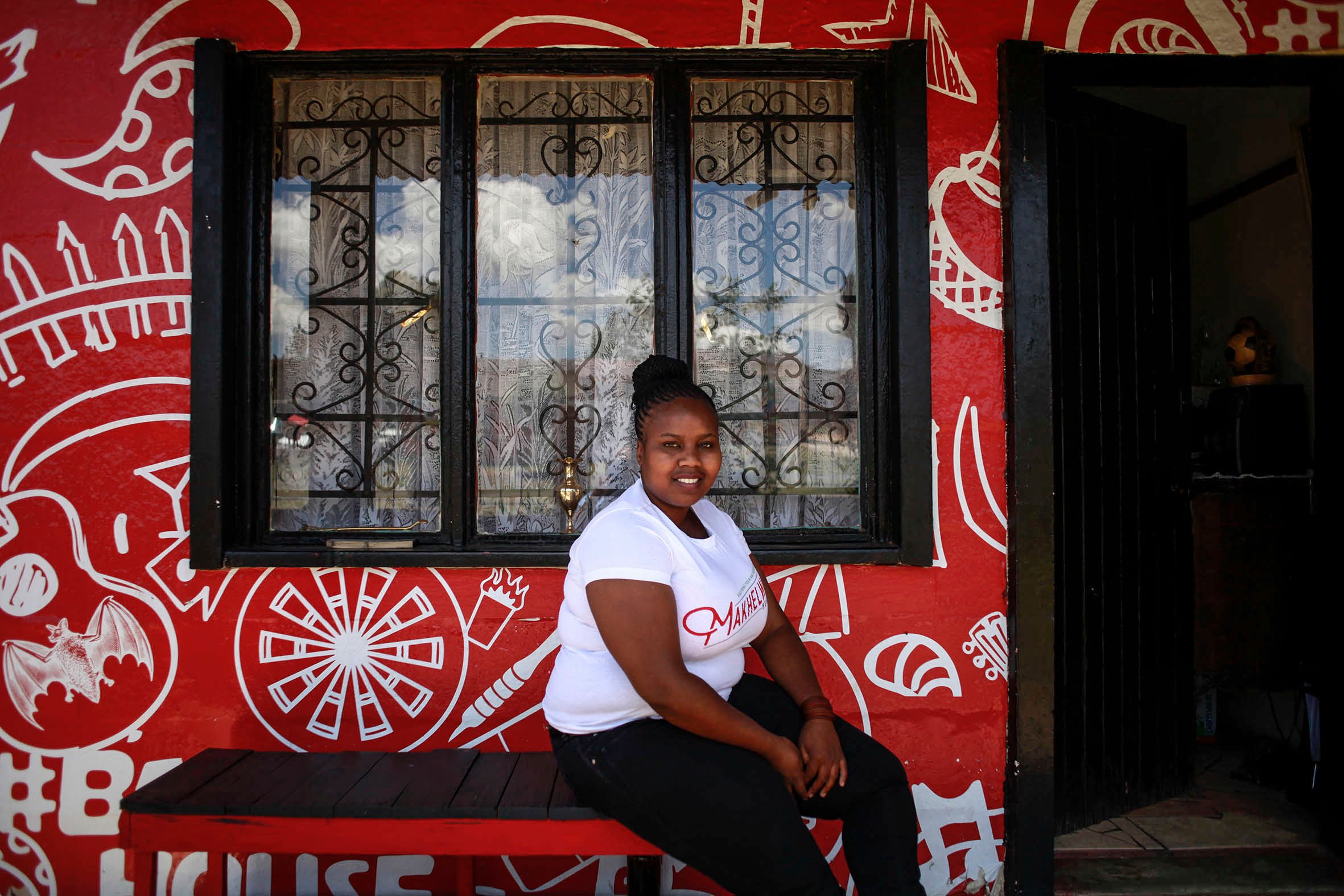Neighbours: The residents of Poka Street in Orlando West, Soweto, host a variety of pop-up shops in their homes, on their front lawns and in their street. Photo: Jeffrey Rihotso
‘Maaaaakhiiii!” The women would sing this on their side of the stop-nonsense to get the attention of their makhelwane.
Used across the country to refer to one’s neighbour, this isiZulu term means more than “the one who has built a home next to mine”. To be umakhelwane goes far beyond the act of sharing the wall that divides the yards. They are the go-to people for borrowing Omo, a cup of sugar or a few teabags. If only one family on the street had a television set, the children of the neighbourhood would be welcome to watch.
Instead of using the main road, some homes had two entrances so that their neighbours could walk through their yard as a double-up (shortcut) to their destinations. Days would begin or end with fence-talk to catch up on the news of the block.
Over the years, these communal practices have become unloved perhaps in response to issues of safety. Stop-nonsenses have been replaced with high walls. If people do not have the necessities to make tea, they do without it. We often do not know our neighbours’ names, where they are from and how they are doing. Instead, neighbours are only likely to encounter each other while driving up to their homes, watering pavement lawns or locking gates.
Growing up in their grandmother’s house on Poka Street in Orlando West, Soweto, cousins Sifiso Dlangamandla (33) and Kgosi Rampa (31) witnessed this shift. In a bid to reverse the isolation, they created the Makhelwane Festival in 2014.
During the festival, the cousins transform the street they grew up on into a commercial hub. But, instead of closing Poka Street to set up stalls and stages, the Makhelwane Festival invites visitors into residents’ homes.

The purpose is to remind festival-goers about a sense of community. Photo: Jeffrey Rihotso
“We run Locrate Market from February to November at the park by Lebo’s Backpackers. We wanted to do something different for December, something that would bring it back to the neighbourhood that we grew up in as a sign of appreciation to the people from our hood, just to say thank you for raising us,” Rampa explains.
To do this, Rampa and Dlangamandla approach homeowners on Poka Street about renting their homes. To draw the line between opening up their neighbourhood and intruding, they let the homeowner decide the conditions of use. “All the power is in the homeowner’s hands. If they are comfortable we are comfortable. They decide what we can use. Some give us just their yard, others add their dining room, toilet and kitchen. But sometimes they just lock their bedrooms and give us free rein of their homes, as long as we respect the way we found it,” says Rampa.
The next step is introducing vendors to homeowners. “We then take the money from the vendor and give it to the homeowner,” he continues. “Stall” prices range from R500 to R750 a day.
The selected homes are transformed into restaurants, galleries and fashion boutiques that the festivalgoers can pop in and out of in between enjoying the performances and discussions.
This year, the performance line-up includes Femi Koya, Doc Shebeleza, the band BCUC and Moonchild Sanelly. With regard to talks, this year will host Soweto historian Bra Steve Lebello and entrepreneur Lethabo Mokoena, who will
discuss the importance of ploughing back into your neighbourhood.
Other homes will be used for exhibitions such as the body of work by natural hair stylist Nikiwe Dlova. She will also do people’s hair in one of the houses. Homes will also be transformed into boutiques such as the Block 88 Concept Store. Film screenings will take place at Lebo’s Backpackers.
One of the homeowners who continues to partner with the festival is 28-year-old Ayanda Radebe, a Poka Street native and makhelwane to Rampa and Dlangamandla. Radebe lives in her family home with her two aunts and seven other family members. “We are a family of 10. But now because it’s December we’re gonna be 12. The others are coming this week,” she explains.

Dropping stop-nonsenses: Ayanda Radebe lives on Poko Street. Photo: Oupa Nkosi
Given that Radebe’s home is already a full house, one would think she and her family would be opposed to opening their home up to even more people. Yet she laughs at the idea of the festival infringing on her personal space: “No man! It’s all about the festive feeling. Ithi ngibeke so: ngamaChristmas, we used to go in from house to house. So we don’t feel that this is any different. It’s all about enjoying ourselves, the entertainment, the people. The festival pays us R500 for the house, we meet people and sithola opportunities through the festival. We don’t feel kuthi they are invading ispace sethu, they’re empowering us instead of forgetting about us.”
The Makhelwane Festival takes place from December 14 to 16. Tickets cost R150. For more information visit makhelwanefest.co.za